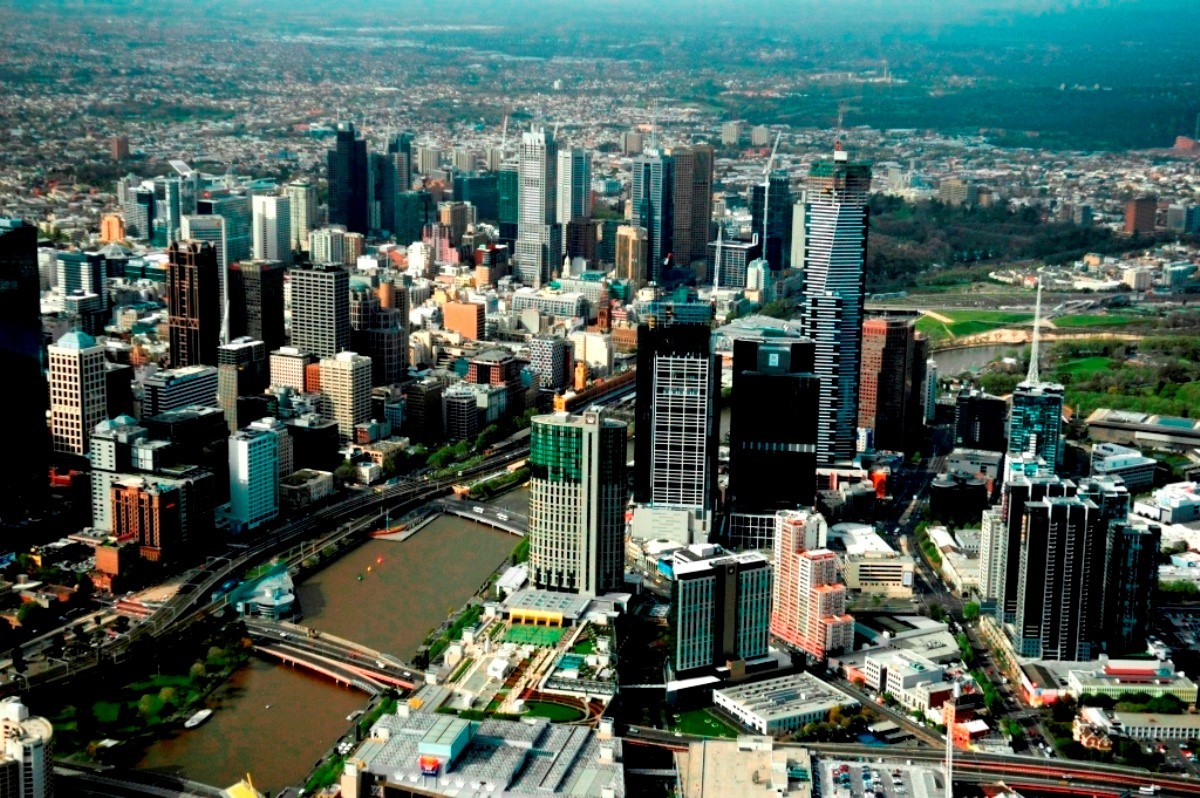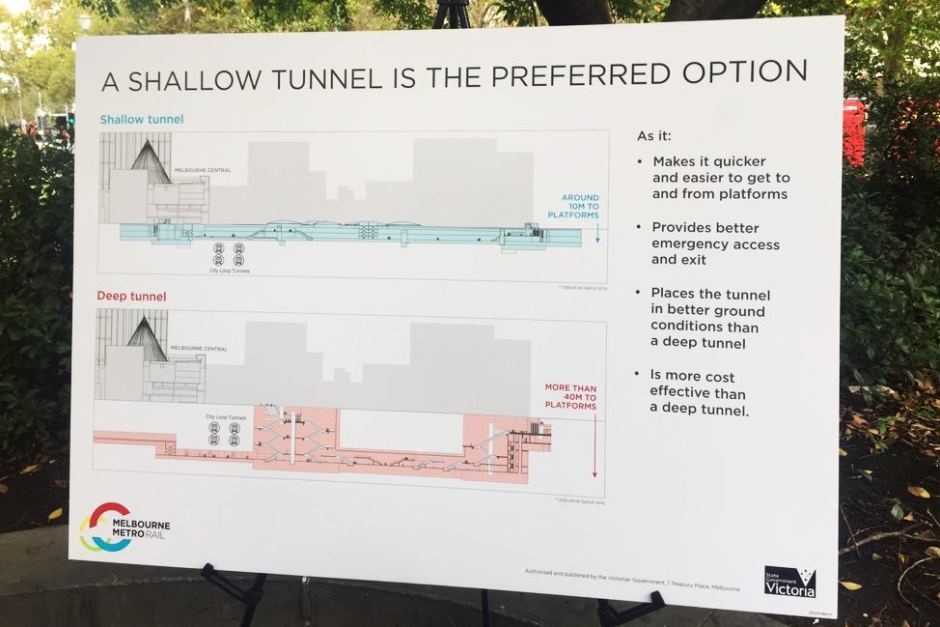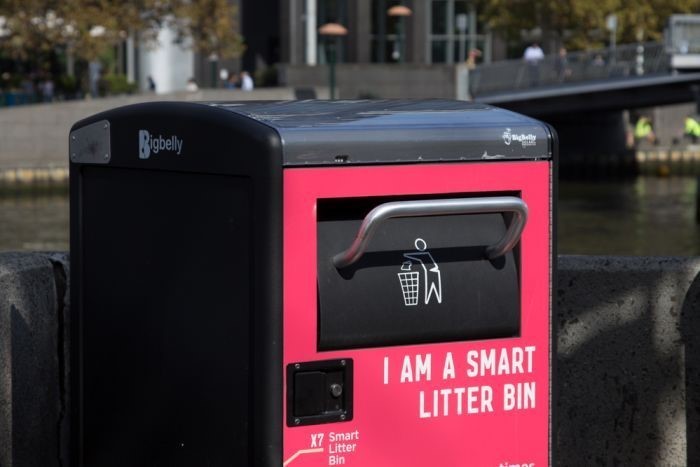IBM will help Melbourne to solve city problems
Melbourne is one of the largest cities in the world participating in the Smarter Cities Challenge program

In 2010, IBM launched the Smarter Cities Challenge project. The goal of the project is to help city administrations to solve the actual problems they face. For each city, the list of problems is strictly individual. As part of the Smarter Cities Challenge initiative, IBM has already sent 700 of its specialists to city municipalities from different countries around the world, where they have provided free consultancy assistance to local governments in providing vital services to the public.
')
In the first four years of the program, most of the 116 municipalities that won the IBM Smarter Cities Challenge grants improved public safety, economic development, urban income, quality of social services, public transport, utilities, and increased citizen involvement in solving urban problems. . Now a team of specialists from IBM will arrive in Melbourne (Australia), where experts will deal with the problems of the city for three weeks.
There are six people in the IBM team, each of them is an expert in his field. They analyze all the available data on the critical problem that the municipality has pointed out. Members of the IBM team will personally meet with dozens of representatives from local government, business, non-profit and community organizations, as well as ordinary citizens. In the course of these meetings, they get acquainted with different points of view about the causes and possible ways of solving the problem, receiving information “first-hand”. After analyzing the information, IBM provides the municipality with comprehensive recommendations for improving the quality of service for citizens, which are accompanied by a detailed plan for the implementation of relevant projects.
As for Melbourne, this is the southernmost million-plus city. Its population is more than 4 million people. Accordingly, for the normal functioning of all services, transport, etc. need perfect infrastructure. But nothing is perfect, so the city has its own problems. One of them is transport. The administration plans to build a new metro line, which will reduce the load on the city’s roads and allow residents to get to work and home more quickly. Almost all residents agree that the city needs a subway. But how deep the subway should be is a question.
There are two camps technologists. The first group of experts believes that the subway should be deep, with tunnels that lie at a depth of about 40 meters. Building such a branch is a long process. Therefore, the second group appeared, which considers that it is necessary to build at a depth of just 10 meters.

And there is still no main working draft on which to start work. The administration does not decide which of the construction options to choose. Using the capabilities of the Watson cognitive system, as well as its own experience and other services and tools, experts from IBM will help you choose the best project option that will allow you to build the metro in a short time, making the branch convenient for all residents.
In addition to the metro, there are other problems: waste disposal, water and air pollution, the problem of congestion of the entire city. Experts IBM plans to help the city become “smart” by proposing appropriate solutions. It will be based on huge amounts of unstructured data, which will be processed, analyzed and structured using the services of the corporation. At the exit, specialists will receive information on various links between individual factors (bad weather and traffic congestion, insufficiently quick disposal of garbage and illness, etc.).

Recycle bins can also be smart, being able to analyze the frequency of garbage being thrown into them and the types of waste.
The Smarter Cities Challenge program has already helped many cities, among which the following projects should be highlighted:
Singapore - help with the optimization of sea traffic for one of the largest ports in the world.
Glasgow (UK) subsidizes senior citizens with low income heating costs. The city also secured additional funding in the amount of $ 40 million from the State Strategy Technology Council Board under the UK government.
Jacksonville (Florida, USA) opened a public resource, implemented as a dashboard that displays urban performance indicators and achievements in economic and social development, including city building permits issued, jobs created, benefits for veterans, and much more. This project has been praised by the United States Institute for Social Technology (Public Technology Institute).
Johannesburg (South Africa) has implemented a comprehensive technology solution for public safety and emergency management.
Nanjing (China) implemented a program using social media, which helped attract over 2 million people to participate in the 2014 Youth Olympic Games as volunteers.
Porto Alegre (Brazil) introduced the Digital PoA online platform, which facilitates digital interaction between citizens, city authorities, communities and local organizations.
Thanks to cognitive technologies, it becomes possible to process the data that is generated in cities and which usually pass by the attention of researchers. As mentioned above, these are unstructured data files (weather, number of people on the streets, infrastructure problems, population dynamics, etc.). Hopefully, the residents of Melbourne will soon experience the positive changes made possible by the Smarter Cities Challenge.

In 2010, IBM launched the Smarter Cities Challenge project. The goal of the project is to help city administrations to solve the actual problems they face. For each city, the list of problems is strictly individual. As part of the Smarter Cities Challenge initiative, IBM has already sent 700 of its specialists to city municipalities from different countries around the world, where they have provided free consultancy assistance to local governments in providing vital services to the public.
')
In the first four years of the program, most of the 116 municipalities that won the IBM Smarter Cities Challenge grants improved public safety, economic development, urban income, quality of social services, public transport, utilities, and increased citizen involvement in solving urban problems. . Now a team of specialists from IBM will arrive in Melbourne (Australia), where experts will deal with the problems of the city for three weeks.
There are six people in the IBM team, each of them is an expert in his field. They analyze all the available data on the critical problem that the municipality has pointed out. Members of the IBM team will personally meet with dozens of representatives from local government, business, non-profit and community organizations, as well as ordinary citizens. In the course of these meetings, they get acquainted with different points of view about the causes and possible ways of solving the problem, receiving information “first-hand”. After analyzing the information, IBM provides the municipality with comprehensive recommendations for improving the quality of service for citizens, which are accompanied by a detailed plan for the implementation of relevant projects.
As for Melbourne, this is the southernmost million-plus city. Its population is more than 4 million people. Accordingly, for the normal functioning of all services, transport, etc. need perfect infrastructure. But nothing is perfect, so the city has its own problems. One of them is transport. The administration plans to build a new metro line, which will reduce the load on the city’s roads and allow residents to get to work and home more quickly. Almost all residents agree that the city needs a subway. But how deep the subway should be is a question.
There are two camps technologists. The first group of experts believes that the subway should be deep, with tunnels that lie at a depth of about 40 meters. Building such a branch is a long process. Therefore, the second group appeared, which considers that it is necessary to build at a depth of just 10 meters.

And there is still no main working draft on which to start work. The administration does not decide which of the construction options to choose. Using the capabilities of the Watson cognitive system, as well as its own experience and other services and tools, experts from IBM will help you choose the best project option that will allow you to build the metro in a short time, making the branch convenient for all residents.
In addition to the metro, there are other problems: waste disposal, water and air pollution, the problem of congestion of the entire city. Experts IBM plans to help the city become “smart” by proposing appropriate solutions. It will be based on huge amounts of unstructured data, which will be processed, analyzed and structured using the services of the corporation. At the exit, specialists will receive information on various links between individual factors (bad weather and traffic congestion, insufficiently quick disposal of garbage and illness, etc.).

Recycle bins can also be smart, being able to analyze the frequency of garbage being thrown into them and the types of waste.
The Smarter Cities Challenge program has already helped many cities, among which the following projects should be highlighted:
Singapore - help with the optimization of sea traffic for one of the largest ports in the world.
Glasgow (UK) subsidizes senior citizens with low income heating costs. The city also secured additional funding in the amount of $ 40 million from the State Strategy Technology Council Board under the UK government.
Jacksonville (Florida, USA) opened a public resource, implemented as a dashboard that displays urban performance indicators and achievements in economic and social development, including city building permits issued, jobs created, benefits for veterans, and much more. This project has been praised by the United States Institute for Social Technology (Public Technology Institute).
Johannesburg (South Africa) has implemented a comprehensive technology solution for public safety and emergency management.
Nanjing (China) implemented a program using social media, which helped attract over 2 million people to participate in the 2014 Youth Olympic Games as volunteers.
Porto Alegre (Brazil) introduced the Digital PoA online platform, which facilitates digital interaction between citizens, city authorities, communities and local organizations.
Thanks to cognitive technologies, it becomes possible to process the data that is generated in cities and which usually pass by the attention of researchers. As mentioned above, these are unstructured data files (weather, number of people on the streets, infrastructure problems, population dynamics, etc.). Hopefully, the residents of Melbourne will soon experience the positive changes made possible by the Smarter Cities Challenge.
Source: https://habr.com/ru/post/393661/
All Articles